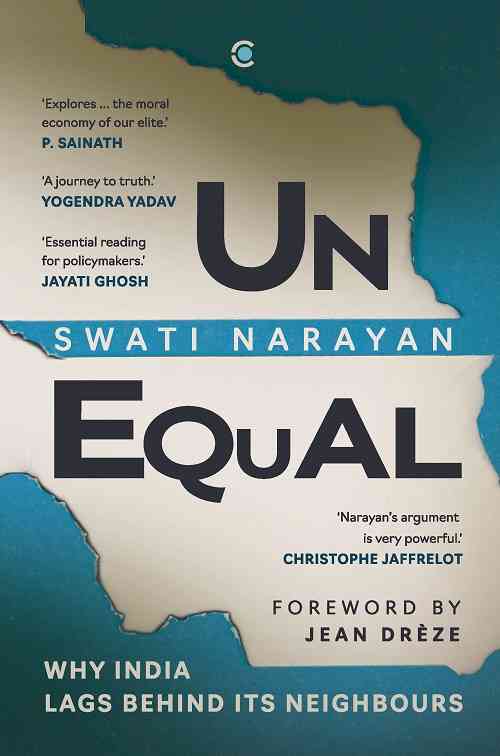Swati Narayan authors book titled `UNEQUAL: Why India Lags Behind Its Neighbours’
The book is published by Contxt- an imprint of Westland Books and will be released on 27th November 2023.

Writer and activist Swati Narayan has authored book titled `UNEQUAL: Why India Lags Behind Its Neighbours’.
The book is published by Contxt- an imprint of Westland Books and will be released on 27th November 2023.
Unequal covers important themes like the economics of booming India, social ills like sex-selective abortion, child stunting, illiteracy, and preventable deaths. The comparison is not only between the burgeoning billionaire class and the neglected masses but also between the northern states and their southern counterparts.
Taking learnings from states like Tamil Nadu and Kerala, the author highlights solutions to the persistent problems and how the government can commit to social welfare investments to bridge social inequities.
About the Book
A GROUND-BREAKING COMPARISON OF INDIA’S SOCIAL DEVELOPMENT INDICATORS WITH THAT OF SOUTH ASIAN NEIGHBOURS AND AN IMMERSIVE EXAMINATION OF WHY INDIA LAGS BEHIND THEM
A newborn girl can expect to live to eighty in Sri Lanka, seventy-four in Bangladesh and sixty-nine in India. This is but one of a range of Swati Narayan’s insights from a five-year study across four countries: India, Bangladesh, Nepal and Sri Lanka. She found that even poorer neighbours were doing better than India on a range of social indicators: health, nutrition, education, sanitation, with more women working outside the home.
Narayan’s intensive, immersive research shows that India’s leapfrogging neighbours have worked hard to dilute social inequalities. Land reforms, investments in schools and hospitals, and socio-political reform movements aimed at diluting caste and gender discrimination - all of these have wrought change over the decades. Excellent networks of primary healthcare clinics, village schools and household toilets have transformed the lives of citizens in these countries.
In economically booming India, on the other hand, social ills like sex-selective abortion, child stunting, illiteracy and preventable deaths are rampant. Inequalities are stark here—not only between the burgeoning billionaire class and the neglected masses, but also among the northern states and their southern counterparts. However, it is in fact the successes in states like Tamil Nadu and Kerala that offer grounds for optimism—India is capable of transformation if governments commit to social welfare investments and bridging social inequities.
Packed with human stories as well as hard data, and shot through with empathy and hope, Swati Narayan’s Unequal is a necessary book for our times.
It is also an absolute feat of research—and storytelling.
About the Author
Swati Narayan is an academic and activist. Currently, she is an Associate Professor at the School of Public Health and Human Development at O.P. Jindal Global University.
For more than a decade, she has also been an activist and researcher with pioneering social movements and civil society organisations.
She is an alumna of the Tata Institute of Social Sciences, School of Oriental and African Studies and London School of Economics and Political Science. Her research and opinion articles have been published in The Indian Express, The
Hindu, The Telegraph, Hindustan Times, The Guardian blog, Prospect magazine, Economic and Political Weekly, Gender and Development and several other journals and publications.


 City Air News
City Air News 










